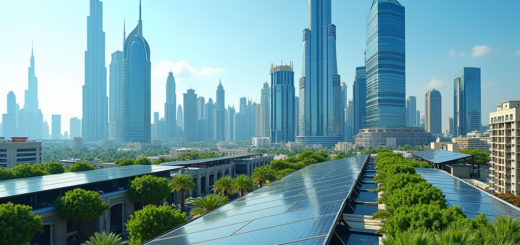Difference between mainland and freezone
Establishing a business in Dubai requires a choice between two distinct environments: the mainland sector or a free zone. Each of these offers specific advantages, regulatory conditions, and business implications, thereby making the decision a critical foundational step for prospective entrepreneurs. The topic of this article delves into the nuanced debate of free zone vs. mainland, covering aspects such as ownership rights, taxation, scope of operation, and compliance. A comprehensive comparison of these factors will equip business owners to make an informed decision that best matches their strategic objectives.
Introduction to Business Landscapes
At the heart of the free zone vs. mainland discussion is a fundamental understanding of Dubai’s commercial environment. Mainland companies operate within geopolitical borders outside the special economic networks known as free zones. They are governed by national laws and business regulations. In contrast, free zone businesses enjoy specific advantages within these zones, which are designed to foster a streamlined business experience.
It’s crucial to gauge the importance of choosing the correct jurisdiction, as the mainland and freezone key differences will significantly affect operational dynamics and growth potential. Selecting the appropriate jurisdiction should consider several factors, including the nature of business, target markets, ownership preferences, and long-term business ambitions.
What is Mainland Company Formation?
Mainland company formation pertains to establishing a business entity licensed by the Department of Economic Development (DED) in Dubai. These companies are unrestricted in their ability to operate throughout the local market as well as internationally.
Characteristics of Mainland Companies:
- They are authorized to partake in a broad spectrum of business activities.
- Traditionally, a local partner is required to hold a majority stake in the enterprise.
- They comply with the commercial laws and regulations enforced by the government.
The industries that typically prosper in the mainland context include sectors like retail and services, addressing local consumer demands. Often, the legal requirements stipulate a certain shareholding structure for mainland business ownership, a key point among the mainland and freezone key differences, though this varies with business type and other criteria.

What is Freezone Company Formation?
Dubai mainland and freezone setups exemplify the broader context within Dubai. A freezone entity operates under a special framework within certain areas earmarked to boost foreign investment, showcasing the key features and incentives of such establishments.
Benefits of Freezone Areas:
- Permissible 100% foreign ownership.
- Full repatriation of profits and capital is facilitated.
- Exemptions prevail on import and export duties.
With Dubai mainland and freezone options, businesses can choose locations optimized for their specific industry, such as logistics, technology, or media. In these free zones, companies benefit from not only robust infrastructure but also proximity to businesses in similar sectors and opportunities for industry-specific networking.
Key Differences Between Mainland and Freezone Companies
When analyzing the free zone vs. mainland businesses, the structure of ownership stands out as a critical distinction. Mainland companies within Dubai traditionally necessitate a local partner holding a majority share. Conversely, in a free zone, entrepreneurs can retain complete foreign ownership without the need for a local stakeholder.
Taxation and Financial Advantages:
The tax environment for these entities diverges quite starkly. While a freezone company is often blessed with lucrative tax exemptions, a mainland entity is subject to regular taxation policies. Financial perks that freezone businesses enjoy could significantly influence the cost-benefit analysis, marking another of the mainland and freezone key differences.
Office and Location Requirements:
| Mainland | Freezone |
|---|---|
| Physical office space is a must | Flexibility in office solutions is available |
| Location is not restricted | Office location is confined to the freezone |
| Direct engagement with the local market | Designed mostly for import and export operations |
| Under closer inspection by local authorities | Enjoys relative autonomy in regulatory compliance |
Business Scope and Freedom of Operation
Mainland businesses typically have the privilege to trade directly with the local market, including undertaking government contracts. However, freezone entities, although benefiting from a streamlined setup process and operational liberties within the zone, may have limitations relating to direct local market trade, often necessitating the appointment of local distributors.
Moreover, entities on the mainland can leverage Dubai’s extensive network of double taxation treaties, which may not be as accessible for companies located in free zones.

Regulatory and Compliance Aspects
Navigating through the regulatory and compliance aspects is pivotal when comparing free zone vs. mainland options. Mainland companies in Dubai are subject to a tiered regulatory framework that includes local, regional, and national laws. They must adhere to stringent compliance standards, which cover everything from employee rights to safety protocols. These standards ensure that mainland businesses maintain high levels of operational integrity in line with domestic business legislation.
On the flip side, freezone companies are typically governed by a singular authority that oversees the specific zone. This results in a more streamlined and often less onerous compliance journey. These governing entities are tasked with upholding the economic objectives of the freezone, which includes attracting foreign investors. As a result, compliance rules within free zones are usually less complex, which can be a significant draw for smaller enterprises or startups.
Accessibility to Local Markets and International Trade
Mainland companies enjoy unfettered access to the broader local market. They can bid on government contracts, trade with other mainland businesses, and reach consumers directly across Dubai. This unrestricted market access is a significant advantage for businesses that target the domestic consumer base or provide services that can’t be contained within a freezone.
In contrast, freezone companies are typically set up with the intent of engaging in international trade. They benefit from being located within strategic trade hubs, with excellent connectivity to shipping lanes and global logistics networks. However, to access the local Dubai market, freezone companies often have to work with local service agents or distributors, which could mean additional layers of costs and administration.
Comparing Costs and Expenses
Costs and expenses often dominate the decision-making process when choosing between a mainland or freezone setup:
- Initial Investment: Starting a business on the mainland generally involves higher upfront costs, partly due to the requirement for a physical office space and potentially higher license fees.
- Operating Costs: Mainland companies may encounter ongoing expenses such as local sponsorship fees and higher regulatory compliance costs.
In the context of free zones, the cost metrics change considerably:
- Economic Incentives: Freezone authorities often provide attractive packages including lower license fees and reduced tariffs on services within the zone, designed to reduce the financial burden on businesses.
- Facilities and Support: Many free zones offer business incubators and shared office solutions that can significantly lower startup and operational costs for new businesses.
The Decision-Making Process: Mainland or Freezone?
The decision to choose a mainland or freezone setup should come down to a clear analysis of business goals and needs. Prospective business owners must undertake a careful assessment of market targets, industry-specific advantages, long-term scaling objectives, and the operational flexibilities each jurisdiction offers. While the mainland presents a broad market reach, it comes with its own set of legal complexities and costs. Meanwhile, a freezone appeals with its ease of doing business and certain financial incentives.
Considering the long-term vision for your business is equally essential. When planning for future growth, the mainland may be the better option if local market integration is crucial. Free zones might be more suitable for businesses focusing on international trade and seeking faster entry into Dubai.

Success Stories: Real-life Business Journeys
Highlighting success stories and case studies serve as a powerful way to illustrate the practical implications of choosing mainland or freezone setups:
- Case Studies of Successful Mainland Businesses: From local retail chains to service companies, there are numerous examples of businesses thriving within the mainland context of Dubai.
- Inspiration from Flourishing Freezone Enterprises: Free zones in Dubai have incubated global tech startups and specialized logistics firms that now play on the world stage.
In a nutshell
To conclude, the juxtaposition between mainland and freezone entities in Dubai boils down to a strategic choice that lies with the individual entrepreneur. While access to the local market can be a game-changer for some, the ease and financial incentives of a freezone can be compelling for others. By understanding the mainland and freezone key differences, business owners can align their establishment with their broader business strategy, ensuring a foundation for future success.
FAQs
What are the primary differences between mainland and freezone companies?
The primary differences come down to ownership, with free zones allowing 100% foreign ownership, and regulatory environments, among others. Mainland companies can access and operate directly within the Dubai market, whereas freezone companies benefit from various tax and custom exemptions but may need a local distributor to target the Dubai market.
Is it better to start a business in the mainland or a freezone in Dubai?
The choice between the mainland and a freezone setup should be guided by your business model, target market, and long-term goals. Mainland is ideal for those seeking direct access to the local Dubai marketplace, while free zone is tailored for those looking towards international trade with some operational and tax benefits.
Can a freezone company do business in the Dubai local market?
A freezone company can do business in the Dubai local market but typically requires a local service agent or distributor. This may involve additional costs and administrative steps.
Are there any trade benefits for companies set up in the freezone?
Freezone companies enjoy benefits like tax exemptions, no import/export duties, and sometimes simplified customs procedures, which can be very advantageous for international trade.
Does setting up in a freezone mean I can skip local compliance and regulations?
No, freezone companies still need to comply with the specific regulations and laws set by the respective freezone authority, but these are often less complex compared to the mainland regulatory landscape.







